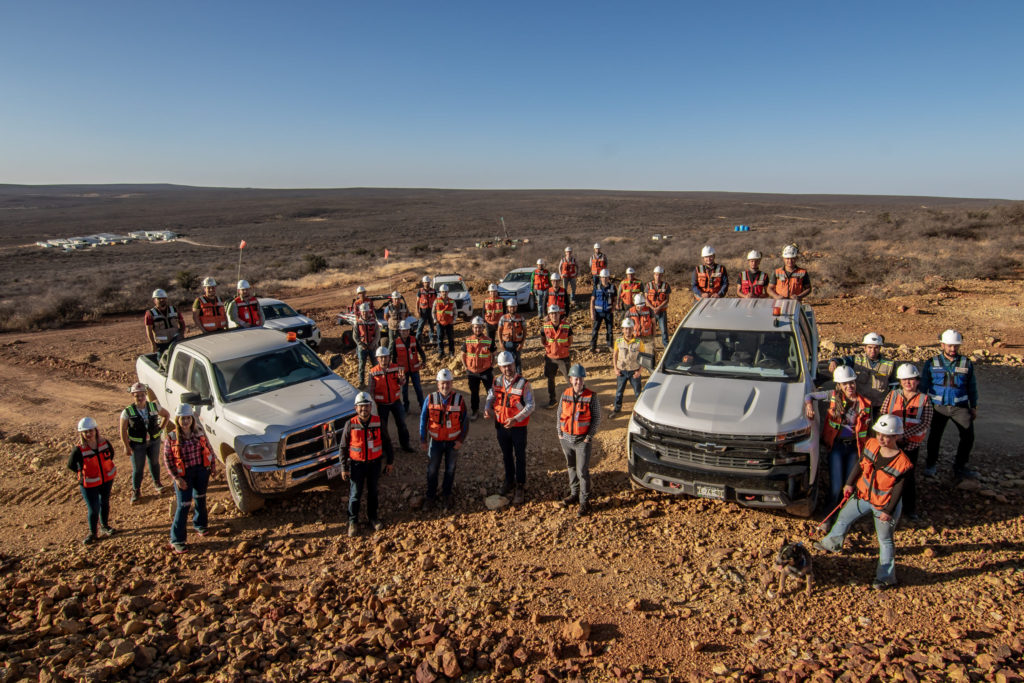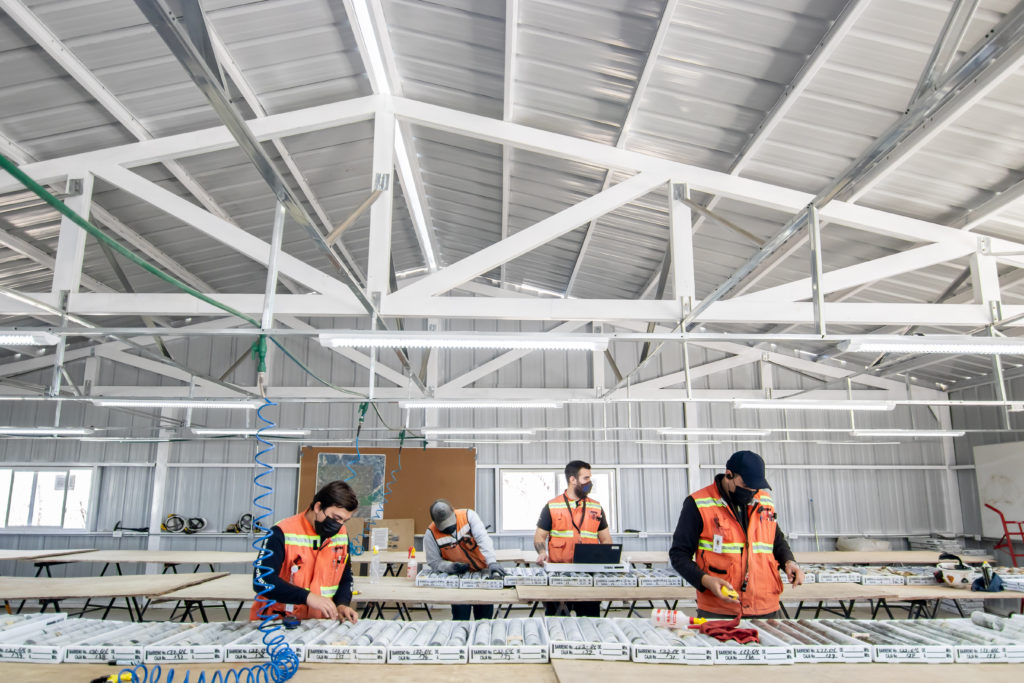JV Article: Discovery Silver plumbs massive deposit in Mexico’s mining heartland


Having acquired 100% of the Cordero silver project in 2019, Discovery Silver (TSXV: DSV; US-OTC: DSVSF) is wasting no time making it one of Mexico’s most important silver producers.
The Cordero project in Chihuahua state can be a Tier 1 silver producer, says Discovery. Indicators point to a mine that will be among the world’s top five producers at a rate of 26 million oz. of silver-equivalent annually from the world’s third largest silver deposit.
Heading up the Discovery team is COO Tony Esplin. He brings more than two decades of experience at Newmont (TSX: NGT; NYSE: NEM) and Barrick Gold (TSX: ABX; NYSE: GOLD). Other key members are country manager for Mexico, Roman Solis, an exploration geologist with 20 years of experience; and vice-president of exploration Gernot Wober, with 36 years of experience in Latin America and recently with Osisko Mining (TSX: OSK) in Quebec.

This is an opportune time for a top-notch team to concentrate on silver. The price of the metal is going up as its importance for a green future increases. It has growing use in solar panels and electric vehicles as well as jewelry, coins and bars.
“Forecast silver demand is expected to surge thanks to its use in solar technology,” said vice-president Forbes Gemmell. “Cordero is emerging as one of the world’s top three primary silver mines at a time when this global shift to green energy takes off.”
Located in the heartland of Mexico’s mining industry, the Cordero project has tremendous potential. It is surrounded by silver producers including the Dolores, Pinos Altos, Santa Barbara, and La Platosa mines as well as the Parral tailings project.
However, Cordero is unique in that it is a large, disseminated silver deposit, unlike others that are vein deposits. The nature of the Cordero deposit considerably lowers the risk of mining and improves the economic outlook.
The distribution of the orebody lends itself to a phased development, which is the approach Discovery took in the preliminary economic assessment (PEA) on Cordero. A phased prefeasibility study is expected in the first quarter of 2023.
The measured and indicated sulphide resource at Cordero totals 541 million tonnes grading 20 g/t silver, 0.06 g/t gold, 0.29% lead, and 0.51% zinc for a silver-equivalent grade of 48 g/t. The inferred resource is 108 million tonnes at 14 g/t silver, 0.03 g/t gold, 0.19% lead, and 0.38% zinc. Total contained silver-equivalent in sulphides is 956 million ounces.
“Our drilling in the far northeast of the deposit continues to intercept zones of high-grade mineralization well beyond the limits of our current resource,” said interim CEO Tony Makuch in a recent press release. “Highlight intercepts from … two holes include 33 metres of 388 g/t silver-equivalent per tonne, 33 metres of 150 g/t, and 16 metres of 147 g/t silver-equivalent. These intercepts correspond with historic surface workings that extend more than 200 metres further to the northeast.“
The deposit at Cordero is amenable to open pit mining with a strip ratio of only 2.2:1. The resource is very well defined; 99% is in the measured and indicated category. Metallurgical results have been excellent with recovery from sulphides being 85% to 95% for silver-lead-zinc at a coarse grind to produce clean, saleable concentrates.
A PEA released in 2021 gave Cordero an after-tax net present value (5% discount) of US$1.2 billion and an internal rate of return of 38%. Payback would occur after two years. This is the base case, using a silver price of US$22 per ounce.
Using prices of US$27.50 per oz. silver, US$1,880 per oz. gold, US$1 per lb. lead, and US$1.45 per lb. zinc, the project carries an even more robust upside. In that scenario, the after-tax NPV rises to US$1.9 billion, the IRR to 55% and the payback period shortens to 1.4 years.
With a 16-year life, Cordero would have an all-in sustaining cost per silver-equivalent oz. of US$12.35. Over its life, the mine would produce 164.8 million oz. silver, 83,000 oz. gold, 1.6 million lb. lead, and 2.3 million lb. zinc — or 372.4 million total payable ounces of silver-equivalent.
The initial capital requirement will be US$368 million, followed by US$129 million in expansion capital, and US$186 million in sustaining costs. Discovery estimates the closure costs at US$44 million.
Discovery is planning a two-phase execution for the mill in the upcoming pre-feasibility study. In the early years the throughput rate is expected to be 25,000 tonnes per day. This will then increase to 50,000 tonnes per day. Recent metallurgical test work demonstrated that oxide mineralization could be co-processed with sulphide mineralization allowing for the elimination of a heap leach circuit. This is a change from the PEA that should reduce the upfront capex and simplify the permitting process.
In addition, the metallurgical test program also confirmed higher recoveries and lower reagent consumption than what was assumed in the PEA. The newest numbers will be included in the prefeasibility study, which is due in the first quarter of next year with the feasibility study and construction decision perhaps a year after that.
Meanwhile, Discovery Silver continues the third phase of drilling that will be included in the feasibility study. The company is also pursuing the needed permits.
So as not to miss an opportunity on the 394 sq. km that make up its property, the company is identifying and drilling regional targets while not losing sight of its main task: to get the Cordero mine and mill into production in a timely manner.
The preceding Joint Venture Article is PROMOTED CONTENT sponsored by DISCOVERY SILVER and produced in co-operation with The Northern Miner. Visit www.discoverysilver.com for more information.
Comments